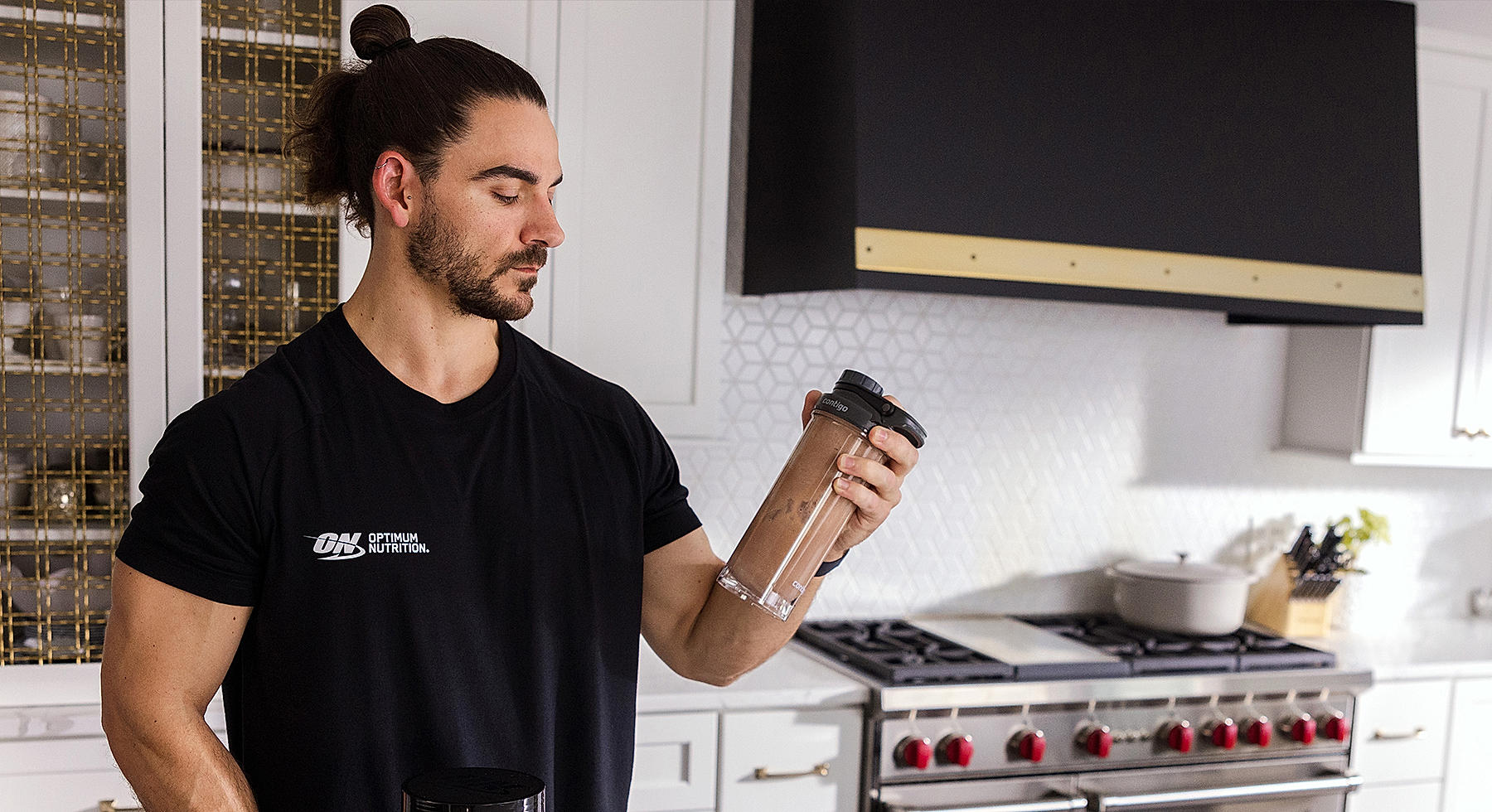 |||
5 minutes
|||
5 minutes
The world is beginning to recognize the importance of protein and understand its many different purposes within the body. However, one key role many know is protein’s role in muscle. Moreover, the way we look at muscle is also evolving. Typically, muscle is synonymous with bodybuilders and physique athletes, but today more are focused on muscle beyond just aesthetics. Healthy adults are beginning to see that muscle plays a role in life and mobility for both men and women. Individuals are looking to build or maintain muscle for strength, sport, physical function with aging, body composition and overall health. Let’s take a closer look between muscle and protein.
What is muscle gain/growth?
Hypertrophy or muscle growth is the growth of muscle fiber cells or an increase in muscle size. In
order to build muscle, our bodies require two key elements-
- Resistance training
- Protein.
How do we gain muscle?
First, resistance exercise.
When we exercise, we are essentially breaking down our muscle proteins. This intense physical activity can lead to micro-damage or mini tears in those muscle fibers, which is a normal response to exercise. Muscles require this ‘micro-damage’ for muscle growth to occur. The muscle breakdown helps to signal to the body that the muscles need to be rebuilt. The degree to which the breakdown occurs will depend on how rigorous the activity is as well as the level of exertion. Resistance training may sound intimidating, but it can be a type of exercise performed by all healthy adults, men and women. Resistance training does not necessarily equate to bulking up. A strength training program must be progressive as your muscles will adapt to the training stimulus.
Secondly, protein.
Protein provides essential building blocks to help support muscle recovery and growth. In order for muscle hypertrophy to occur, muscle protein synthesis must be greater than breakdown. Fortunately, we can influence muscle protein synthesis by creating a positive net protein balance with protein intake.
Whey Protein for muscle gain
Whey is a high-quality complete protein. Whey Protein naturally contain all the essential amino acids and is naturally high in branched-chain amino acids (BCAAs): leucine, isoleucine and valine. Leucine in particular helps to ‘switch on’ muscle protein synthesis. When adequate protein is consumed after exercise, synthesis increases and far exceed breakdown, resulting in a net positive balance (muscle anabolism). In all, increased exercise may increase muscle breakdown. In turn, increasing protein needs.
When we say protein, it means dietary protein from all sources. One should aim to eat a balanced diet that includes protein food sources- plant sources such as legumes, lentils, beans, tofu, and animal sources such as milk. Eggs, chicken, meats. And along with a balanced diet a high-quality complete protein such as whey protein can help you reach your daily protein intake goals which in turn helps with muscle gain.
A whey protein shake is a convenient way of supplementing your diet with a high-quality complete protein. And if you don’t like shakes you can bake or even make breakfast with whey protein. Check out some exciting whey protein recipes.
Whey Protein for muscle gain: take home message.
Building muscle is not an overnight phenomenon. Building muscle takes time and dedication. In all, muscle is truly built overtime through dual efforts between proper nutrition and regular training. Together, over time, resistance exercise and protein may help to support muscle building. Ensure you’re creating a balanced recovery plan that works for you and your body. Muscle recovery plans differ from person to person and depend on many factors including your body, the type of physical activity, duration, intensity and more. Give muscles a minimum of about one to two days to recover. Also, remember muscle recovery is a 24-hour process that can take up to several days. In addition,
When it comes to protein - the type, amount and timing are important pieces to consider. Here are three key tips to help build muscle -
Hit your recommended daily protein intake to support muscle building goals: 1.1 - 2 grams of protein/kg/day.
Choose a complete, high-quality protein containing BCAAs such as whey protein to help support muscle protein synthesis.
Spread intakes of 20-40g of protein throughout the day (including post-exercise).
